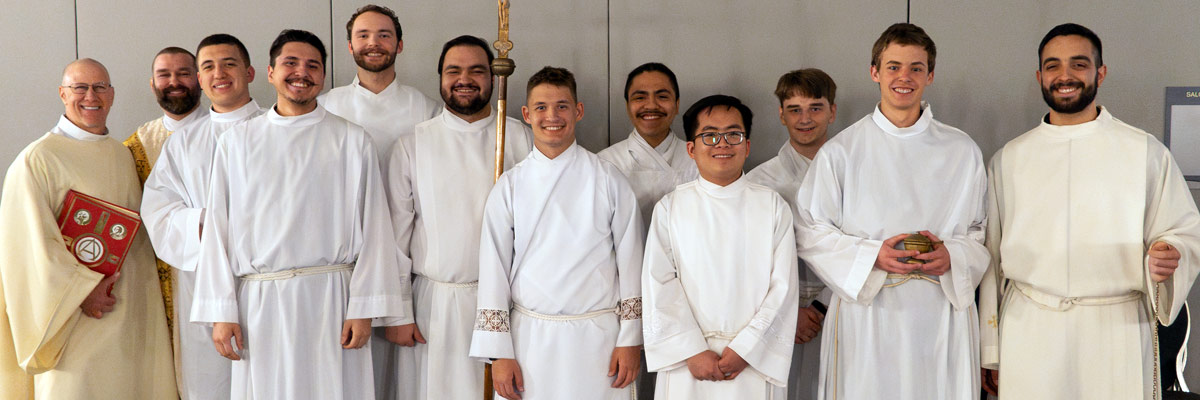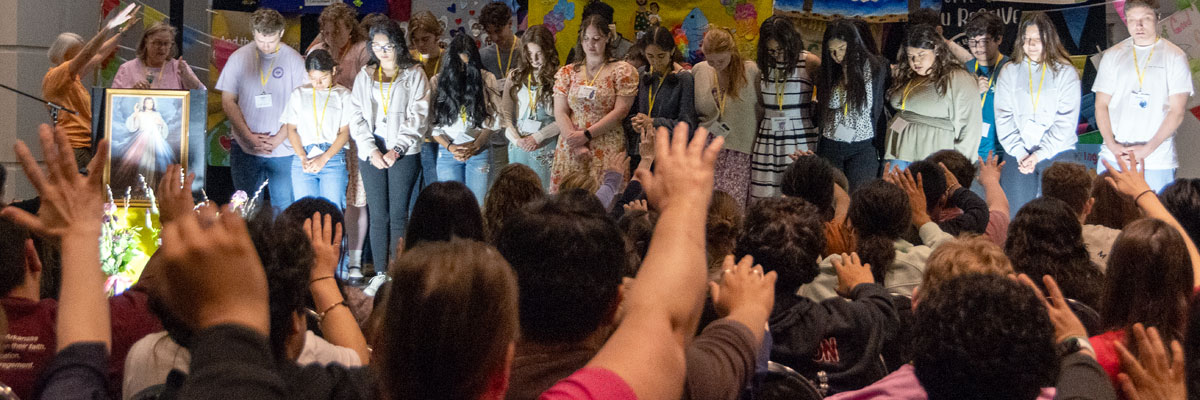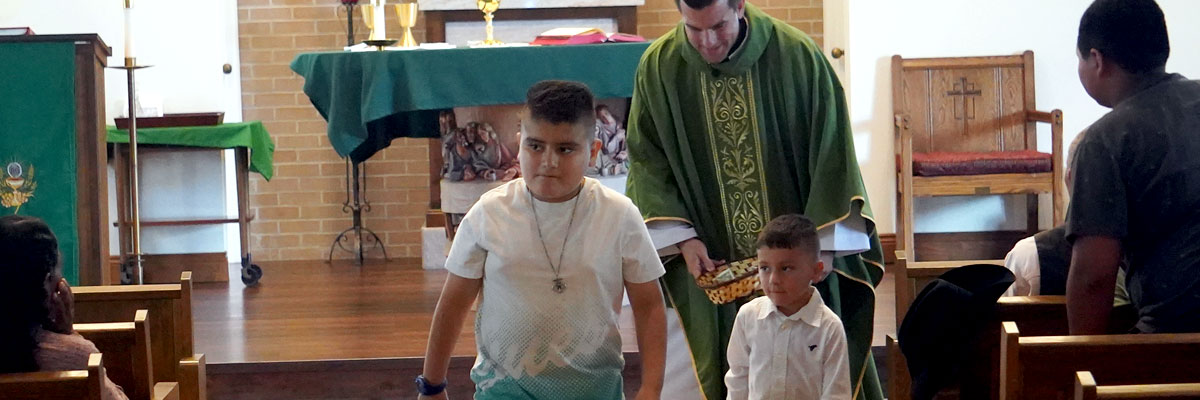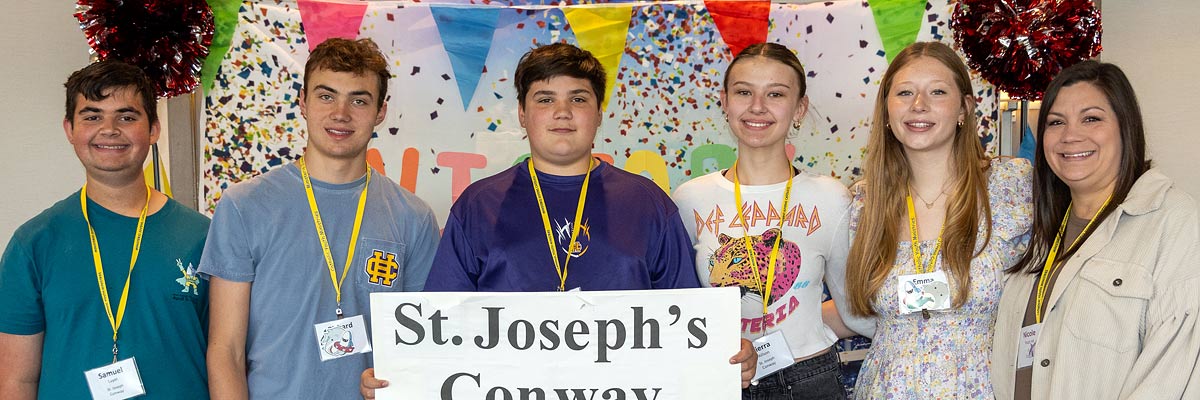Official Website of the
Catholic Diocese of Little Rock
Solemnity of the Most Holy Trinity 2014
Published: June 15, 2014
Bishop Anthony B. Taylor preached the following homily in Ponca City, Okla. on Sunday, June 15, 2014.

Bishop Taylor
In 1950, Hot Springs, New Mexico changed its name to Truth or Consequences in a publicity stunt to boost tourism. The host of a game show by that same name said he would visit and broadcast from the first town that changed its name to Truth or Consequences.
But there were three problems with the show's name: 1.) the truth was impossible because the trivial questions posed to the contestants were impossible to answer correctly, and 2.) the consequences of getting it wrong were inconsequential — usually some kind of embarrassing stunt. But the bigger problem 3.) was the impression given that the truth itself didn't matter much because the contestants bent over backwards trying to come up with funny wrong answers and the stunts were so entertaining.
Today we celebrate the feast of the Blessed Trinity, the most profound truth that God has ever revealed about himself, about how he is put together and about who he is on the inside: that love is his very nature and that love is very demanding. That truth has serious consequences. In our first reading, God revealed himself to Moses in a cloud, crying out as he passed by: "The LORD, the LORD, a merciful and gracious God, slow to anger and rich in kindness and fidelity."
Today we celebrate the feast of the Blessed Trinity, the most profound truth that God has ever revealed about himself.
Notice, he says slow to anger — not never — there are consequences, especially when our sin hurts others, but even here God is compassionate. And he expects the same from us. And then in our Gospel Jesus reveals an even more remarkable facet of the identity and inner workings of God.
Not only did he create the world out of love at the beginning of time, and not only did he gather a people to himself out of love, free them from slavery to Pharaoh, bring them to a land specially chosen for them out of love, send them prophets to keep them on the right path — whom they ignored, despite all of the lamentable consequences of their abandonment of the truth, including their exile into Babylon and subjection to foreign powers ever since — up to Jesus' time when they were perishing under the weight of Roman occupation.
Now, despite all of that, God's love is so great that he has now given "his only Son, so that everyone who believes in him might not perish but might have eternal life." This is the first we have heard of a Son. And not long afterwards we will learn of the Holy Spirit ... and with that, God has revealed for the very first time the truth of the Blessed Trinity. And what are the consequences of the acceptance or rejection of that truth?
Jesus' answer in today's Gospel couldn't be clearer: "Whoever believes in him will not be condemned, but whoever does not believe has already been condemned because he has not believed in the name of the only Son of God." What implications this has for those who have not come to faith through no fault of their own is a topic for another day. What is important for us today is the implications for us who do know about Jesus and who do have the ability to respond.
In this regard, it is important to remember that "belief" has to do with our will, not just our intellect; the truths we live by, not just the truths we say we agree with — in other words, belief is a matter of the heart and not just the head. God's very nature is love and so belief in him is a response of our love to his love, and that can be very demanding. It has wonderful consequences, but like with all love there is a cost: death to self. Submitting our will to his.
Today we celebrate Father's Day, a day when we thank our fathers for all their self-sacrificing love, and a day in which we commit ourselves to do for our fathers whatever love demands going forward. Here too there are truths and consequences, and unlike the game show 1.) the truth of what God asks of us is not mysterious and always involves love, and 2.) the consequences of getting it wrong are serious not only for those whom we fail to love as we should, but also serious for the damage it does to our own soul, our own character — there's truth in the expression "What goes around comes around."
On the other hand, the consequences of getting it right are wonderful even when challenging. And not least of which because through love we participate in the very life of the Blessed Trinity whose feast we celebrate today!









